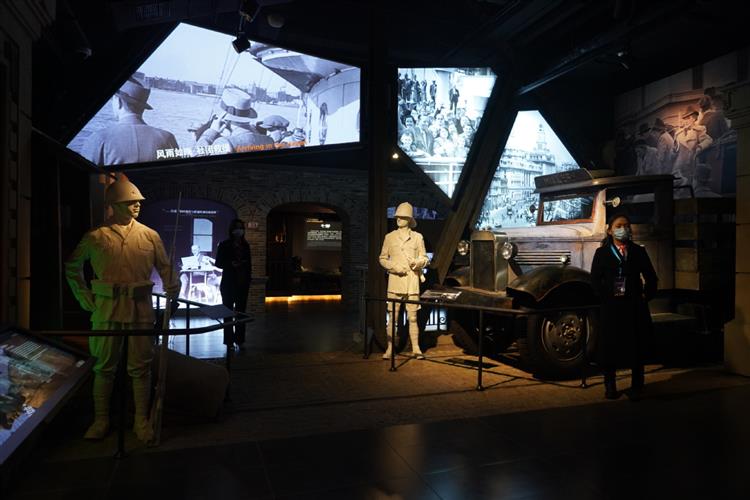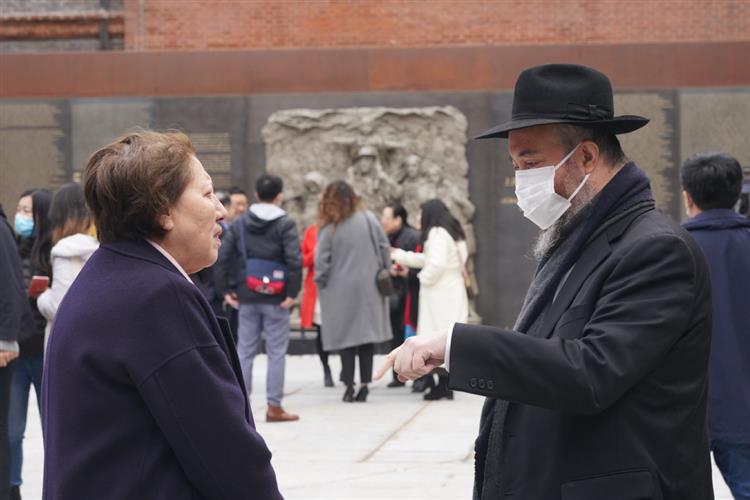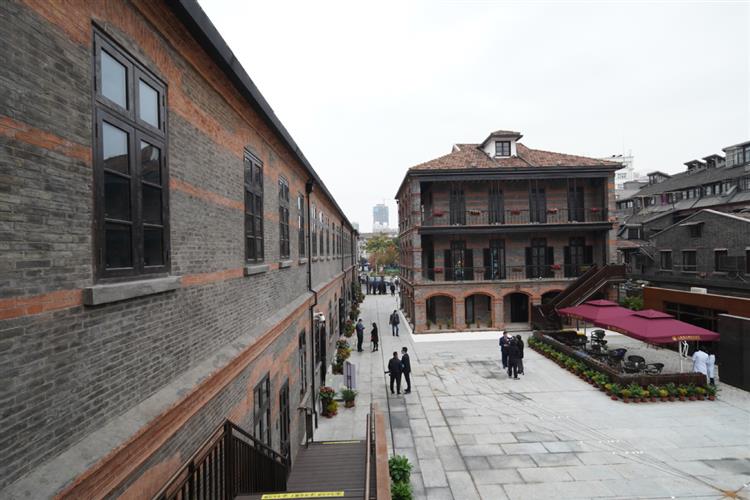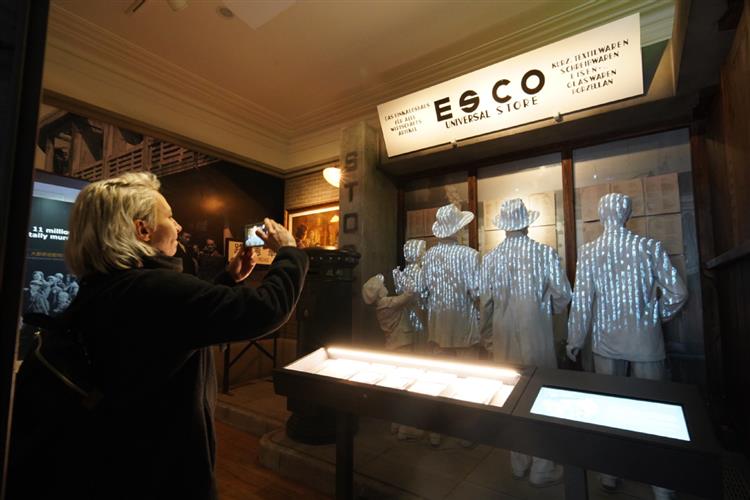Shanghai Jewish Refugees Museum reopens its doors to the public
Time£º2020/12/11 16:44:10¡¡Author£º CAO CHEN¡¡From£ºChina Daily
When the Shanghai Jewish Refugees Museum was established in 2007, it faced the challenge of collecting enough exhibits to tell the story of the estimated 20,000 Jewish refugees who sought sanctuary in Shanghai's Hongkou district during World War II.
Since 2010, when the museum received a toy rickshaw donated by a former Jewish resident, more donated items have come in and the museum had attracted so many visitors£an annual average of 100,000£that it was forced to undertake an expansion project in 2017.

Located on the site of the former Ohel Moshe Synagogue that was built in 1927,the Shanghai Jewish Refugees Museum reopens its doors to the public on Dec8,2020.[Photo by Gao Erqiang]
On Tuesday, the renovated museum, which is located on the site of the former Ohel Moshe Synagogue built in 1927 in Hongkou district, reopened its doors to the public.
The venue is now four times larger than before and features new function halls, educational facilities and nearly 1,000 exhibits£there were just 150 in the past£that tell the stories of many Jews who took refuge in Shanghai to escape Nazi massacres, and the relationship they shared with the Chinese.

Tourists visit the Shanghai Jewish Refugees Museum, as it reopens to the public on Dec 8, 2020. [Photo by Gao Erqiang]
New exhibits include personal narratives, books and memorabilia from refugees donated by themselves or their offspring, as well as collections of local residents. New technologies such as multimedia films have been installed to improve the visitor experience.
Chen Jian, curator of the museum, said the main theme of the expanded exhibitions is to establish a community of a shared future for mankind.
Among the new exhibits is a knitted handbag donated by Shanghai resident Jin Wenzhen, whose grandfather opened a rice store on East Changzhi Road in Hongkou district in the 1940s.

Located on the site of the former Ohel Moshe Synagogue that was built in 1927, the Shanghai Jewish Refugees Museum reopens its doors to the public on Dec 8, 2020. [Photo by Gao Erqiang]
Her grandfather received the handbag one evening in 1940 when a Jewish couple carrying a child suffering from fever came in to borrow money. They gave the handbag as collateral and they would redeem it once they could pay him back. However, the couple never showed up again and the man had been concerned about them and kept the handbag for years before passing it to Jin.
The history of the Jewish Pao Chia guards is revealed by another new exhibit, a whistle donated by a former Jewish refugee last year. The guards were male Jewish refugees in Shanghai, usually aged between 20 and 45, who took turns to maintain order in the community they lived in after the Japanese authorities took over the foreign settlements and concessions in Shanghai in 1943. Each guard had an armband, a rope and a whistle.

Tourists visit the Shanghai Jewish Refugees Museum, as it reopens to the public on Dec 8, 2020. [Photo by Gao Erqiang]
Also included in the new exhibits is a white wedding gown worn by Betty Grebenschikoff, a Jewish refugee who spent 11 years in Shanghai and now lives in the United States. She has revisited her former residence on Zhoushan Road near the museum many times and decided to make the donation during her fifth trip in 2013.
"I have four daughters, a son, grandchildren and great-grandchildren, but without Shanghai, I would have nothing," Grebenschikoff said.
The expanded museum also features a new library complete with a collection of more than 8,000 books donated by Kurt Wick, an 82-year-old former refugee who arrived in Shanghai in 1939 with his family when he was just 1 year old.

Tourists visit the Shanghai Jewish Refugees Museum, as it reopens to the public on Dec 8, 2020. [Photo by Gao Erqiang]
The museum's Wall of Names has also been expanded from 13,732 names before the expansion to the current 18,578 people identified as Jewish refugees in the city at the time. There is a blank section for more names to be added as a result of further historical research.
"The enlargement and renovation show the great importance Shanghai's government attaches to the shared history of Jews and Chinese," Edward Shapira, consul-general of Israel in Shanghai, said at the opening ceremony of the museum on Tuesday.
"The unique museum should be included in every itinerary of tourists from China and abroad in the city, and we will join forces on promoting this matter," he said.

A tourist takes a photo at the Shanghai Jewish Refugees Museum, as it reopens to the public on Dec 8, 2020. [Photo by Gao Erqiang]


